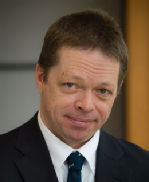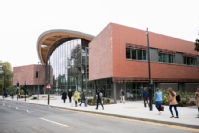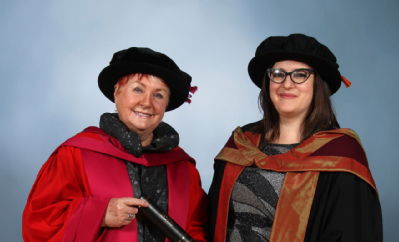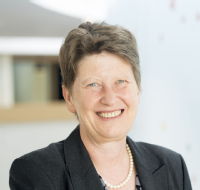2017: The Year the West Midlands comes home

Since becoming Warwick’s Vice-Chancellor a year ago, it has been my ambition to re-establish this University’s commitment to our region. On 10 February I’m delighted to be speaking as part of a Coventry and Warwickshire Champions event in Birmingham to highlight just some of the strengths Coventry and Warwickshire bring to the broader West Midlands region.
Simon Swain, our Pro-Vice-Chancellor for External Engagement, reflects here on some of the ways in which we seek to contribute and add value, and sets out our aspiration to play our part in making the region even stronger in 2017.
Best wishes

2017 promises to be a big year for Coventry, Warwickshire and the broader West Midlands region. We’re fewer than 100 days from the vote for the first directly-elected mayor for the West Midlands; legislation that will turn HS2 from drawings to train tracks is set to pass in the coming weeks; Coventry will make its bid to be 2021 City of Culture later this year, and we’ve just seen the City Council formally adopt a 10-year cultural strategy for the city, which was led by Jonothan Neelands from WBS.
At Warwick, we strongly believe universities have a huge role to play in the regions in which they are located. We are drivers of innovation, productivity and cultural development through knowledge exchange, skills development and academic research, as well as the huge input our students and staff make on so many levels. We are crucial to making our region a better place to work and live. So how can we most effectively contribute to Coventry, Warwickshire and the West Midlands in 2017?
From Warwick’s inception, we have sought ways to positively impact the region’s skills base, cultural engagement, manufacturing and business development. Here are just some examples.
Looking at skills and apprenticeships, following the successful development of the first WMG Academy for Young Engineers in Coventry, we have opened a second Academy in Solihull. This equips even more of the region’s young people with the technical skills needed for either employment or higher education. We have also introduced the WMG Applied Engineering Programme aimed at higher apprentices looking to study for a degree whilst working, and a longstanding partnership with National Grid provides training for young people in the region who are not in education, employment or training (NEETs) to help them into work.
2017 will see the opening of the National Automotive Innovation Centre on our campus, a £150m investment as part of the long-term collaboration between WMG, Jaguar Land Rover and Tata Motors European Technical Centre. It’s the largest private sector investment in any UK university to date, building Warwick’s reputation as a powerhouse of automotive innovation, and cementing the region’s reputation as a hub for manufacturing.
Our Science Park is a hive of activity for the region’s small and medium-sized employers (SMEs). We host 135 businesses, providing advice on finance and incubation, research and development and knowledge transfer. In partnership with Warwickshire County Council and the European Regional Development Fund, we recently started Business Ready - a new support programme designed to help companies achieve and exceed their growth potential, boosting the region’s economy through the creation of highly-skilled jobs. We want to expand this work in the coming year.
We are also developing an exciting vision for a new Innovation Campus at Wellesbourne. We’re inviting inspirational businesses to join us for truly collaborative working and the development, demonstration and testing of genuine innovation that accords with our mission to educate and foster new knowledge, working with regional agencies to create jobs in a sustainable manner.
Warwick Arts Centre, the largest outside London, provides events, performances, schools engagement and community-led productions. Over three quarters of the Arts Centre’s audience come from within a 45-minute catchment area. With nearly one million visitors a year, the venue plays a crucial role in attracting people to Coventry. At present we are preparing for a major investment to make it bigger and better!
With the help of Nigel Driffield, our newly appointed Deputy Pro-Vice-Chancellor for Regional Engagement, we’ll be doing as much as we can in 2017 to work with our regional agencies and organisations helping to bring new jobs and expertise into our neighbourhoods. We’ll be thinking hard too about how we can give our students more opportunities for placements in regional companies and organisations, and how we can extend our input into excellent local initiatives like FabLab Coventry.
We’re also hoping to do more with our partners in schools across the region, building on our terrific teacher training and our student volunteers, and we look forward to working more closely too with the University Hospitals Coventry and Warwickshire NHS Trust, developing our key shared research to the benefit of everyone who lives in this area. And soon we’ll be taking the West Midlands out of itself: to London to officially launch the City of Culture bid and to the global gathering of planners and developers in Cannes where we’ll stand alongside Coventry City Council in trying to bring investment to our campus and our locality and play our part in the region’s vision for success and wellbeing.
Looking to the ambitious plans for growth and development across Coventry, Warwickshire and the broader West Midlands region, we are absolutely committed to playing our part and I look forward to seeing more to come in 2017.

Simon Swain, Pro-Vice-Chancellor for External Engagement
 Execblog Resource
Execblog Resource

 Please wait - comments are loading
Please wait - comments are loading







 Rachel Sandby-Thomas, our new Registrar, has written the following blog on the
Rachel Sandby-Thomas, our new Registrar, has written the following blog on the 


 Loading…
Loading…

